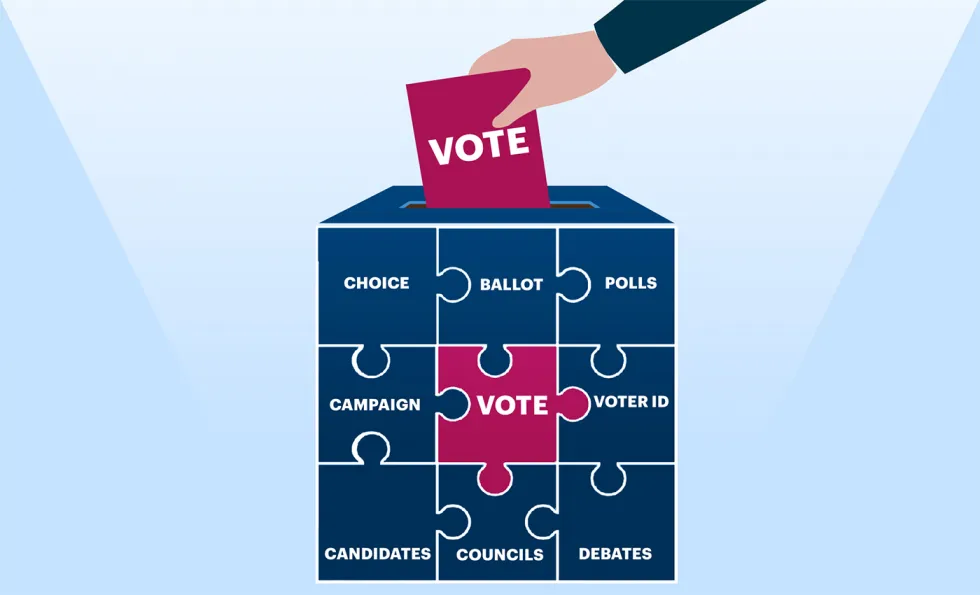By: Sam Doak
April 28 2023

In this handy guide, Logically Facts shows you how you can spot false and misleading claims and find reliable sources of information in the weeks leading up to elections, as well as a guide to the U.K.’s new voter ID rules and how to spot misinformation online.
When deciding who to vote for, you may come across conflicting information about what a candidate has said. If you come across a statement that seems out of the ordinary, or you feel is likely to affect how you choose to vote, it’s often a good idea to look into it further.
Luckily, there are a few easy ways to check whether or not a candidate has said something. The most straightforward way is to search for the quote in question using a search engine. Using quotation marks when you search should help with this, as this will tell the website to show you results that include the exact phrase you’re looking for. If you can’t find many results of the statement you’re looking for, it may be a sign that the statement isn’t true.
If you already know where a candidate is supposed to have said something, check there. If it was in an interview, you can read, watch, or listen to it. If it was on social media, you should be able to easily search their public-facing accounts. This can be very useful, as it should allow you both to know whether a candidate has said something, and give you the full context behind their statements.
When you’re trying to decide who to vote for, you might consider seeing what the candidates in your area have said on social media. This can be a good way to hear directly from the people competing to represent your area, but it is important to be careful. During elections, it’s common for people to make fake accounts designed to look as though they belong to political figures.
One of the more common kinds of fake social media pages is parody accounts. It’s often easy to identify them by following these steps:
While parody accounts are relatively easy to distinguish, some fake profiles can be harder to detect. In these cases you can try:
During any election, candidates and their supporters will make claims with the goal of winning your vote. It takes a lot of time to be fully informed on issues that might come up, and this can make it difficult to tell if what you’re hearing or reading is true, and there are a few easy ways to check.
One of the simplest ways to check if a statement is true is to check how it has been covered in the news. You don’t need to put all of your trust in any single news organization, but by reviewing their coverage you can quickly tell if there is a debate around the truthfulness of a candidate’s claims. By reading closely, you might find references to other sources of information, such as statistics or official publications, that can help you explore the issue further.
In the U.K., there are a number of organizations, including Logically Facts, that are specifically dedicated to fact-checking. These sites can be a great resource when you’re unsure of whether something a candidate has said is true, as they are continually on the lookout for false and misleading statements made by politicians and other public figures.
There are a number of ways that you can keep yourself informed in the run-up to the local elections. There are a lot of great local and national news organizations that will be closely covering the races and issues in your area. The key to being informed is to attempt to get your news from numerous sources and to do some research if you’re unsure about what you’re reading. You can also check whether a news outlet is covered by the Independent Press Standard Organisation (IPSO), the U.K.’s press regulator. While no news organization is infallible, IPSO tries to hold its members to a set of minimum editorial standards.
Beyond the media, you can choose to get information directly from candidates and political parties. This can be found on their official websites, social media channels, and campaign materials. This can be a great way to learn about the positions that candidates have, but it’s important to be aware that these are not unbiased sources.
To find practical guidance on how to vote, where your polling locations and who is standing in your area, you can visit the Electoral Commission’s website. To find up-to-date information on voting in your area, all you need to do is enter your postcode.
(This article was updated on April 24, 2024.)